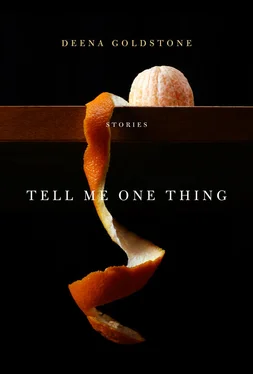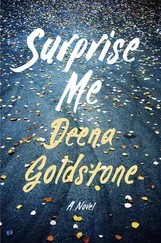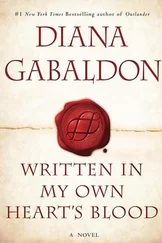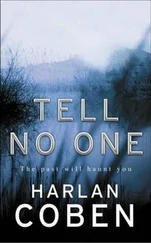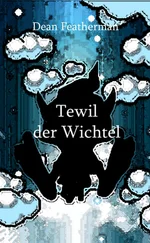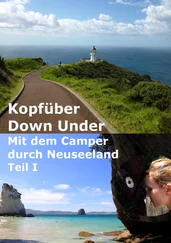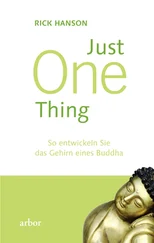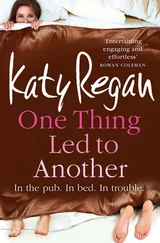And then he called me. My daughter was just turning four, and we were having a discussion about whether she could wear her party dress to preschool when the phone rang. I was distracted when I picked it up. We were late, the discussion had gone on too long, and I was just about ready to give in — what difference did it make if she wore her party dress to sit in the sandbox?
“Anna?” is all he said and I found myself reaching for a chair, my legs giving out under me.
“Owen.”
He laughed. “That was quick,” and immediately I thought, I’ve missed that laugh .
“Would you be able to have lunch with me?” he asked. “I’m in town.”
“Yes.”
ON THE DAY WE HAD ARRANGED I made sure Gracie had a playdate after preschool, and I drove to the restaurant in West Hollywood with a certain amount of trepidation. More than ten years had passed. We were at the end of the 1980s. The country had changed. My life had changed radically. I was bound to two people I cherished beyond measure — my husband, Alex, and our daughter. I had no idea how Owen had spent the past decade and what changes those experiences had wrought within him. Would we even have anything to say to each other?
I parked my car — a young mother’s car, a safe, sturdy Volvo — on a side street and walked down Santa Monica Boulevard to Crespi’s and then stood outside trying to gather some calm into my racing heart. The restaurant was a small place with a dark green awning and the sleek lines of a modern café. I knew the person at the reservation desk was going to be young and thin and wearing black and would show me to our table with a slight swagger. As it turned out, I didn’t even notice who that was because when I walked into the restaurant, Owen was already there, head down, reading the menu.
Oh, how much older he looks was my first thought. He was thinner. His face was gaunt, but when he looked up and saw me, his smile transformed his face and I saw the Owen I remembered.
I walked toward him with my heart hammering again, but when he stood and opened his arms and gathered me in, all the ten years of absence evaporated. My body still knew his body and something within me instantly settled.
“Beautiful still,” he said with his arms encircling me.
I shook my head as I pulled away and we both sat down. It was something I never believed about myself except for those months with Owen.
At first all we did was look at each other, without a word, just looking to take in the other’s face, to make sure we could find the person we used to know so intimately in a face changed by a decade of living. Without the smile, the face I examined looked vastly changed. I wondered if he felt the same way about me.
We didn’t make small talk. We ordered to get the waiter out of our hair and then we put our hands on the table and began.
“Did you bring pictures?” Owen asked. Somehow he knew I had married and had a daughter. Maybe through Michael, whose dogs first brought us together and who subsequently became a friend. I didn’t know. It didn’t matter.
I had brought snapshots of Grace and handed them over. “She looks like her father.”
“Oh,” he said, “I’d never get tired of looking at this sweet face.”
“I know,” I said, so grateful he saw what I did in Gracie.
And then over lunch I told him one Gracie story after another. How she insisted on cutting her own hair when she was two. How she wouldn’t go to her best friend’s birthday party because the little girl had “said a mean thing” to her. How she spent an entire year wearing only pink, even her shoes had to be pink. He listened in that absorbed way he had listened to my recitation of Bandit’s outings, with complete interest, his eyes never leaving my face.
I felt like I was rattling on too long, so I finished with the unnecessary declaration that my daughter was strong willed and sure of herself and that she has been teaching her mother to be a bit more flexible and mellow.
Owen raised his eyebrows in disbelief and I knew instantly what he was saying— Anna, flexible? In what universe? — and I laughed even though he hadn’t said a word and told him I had qualified the statement with “a bit.”
“Now you,” I said, “tell me.”
And he did. Years back in New York working as a dean at the NYU Tisch School of the Arts, a second house in Texas because the state has no income tax.
“Really?” I said. “There’s more to the story than that.”
And he grinned, pleased, it seemed, that I had caught him up, but he didn’t elaborate.
“Are you happy, Anna?” he asked me over coffee. And I could honestly tell him I was.
“I married a good man,” I said, and he nodded as if that fact gave him tremendous comfort.
“You know,” he started, then stopped for a second but pushed on. “I still feel guilty—”
“No,” I cut him off.
“Because I should have told you sooner.”
“It wouldn’t have made any difference.” I said this unequivocally.
“I think about that a lot. I should have, but I don’t know if I could have. I wanted—”
“The same thing I wanted. To love you.”
He nodded. “Yes. To love you.”
And there it was, out on the table. I didn’t blame him. I had no regrets. I loved him still and he saw it. He saw it all. It was easy for me to ask then, “Are you with someone?”
“Yes. Matt. For several years now. He’s from Texas,” and Owen grinned at me.
“Aha, the Texas connection. And is he good to you?”
“Yes.”
“With no drama?”
He looked at me quizzically.
“The last time I saw you Tony was ripping plants out of your garden.”
He shook his head remembering, then smiled gently at me. “Much less drama, but, Anna, there’s something else.” And that’s when his eyes left my face and fell to the table, where his beautiful hands played with the silverware. I waited. He kept shaking his head as if he couldn’t or shouldn’t say what he had come to say.
He took my hand finally and looked up. “Matt is very sick.…”
Oh no , I thought, please don’t …
“And I needed to tell you.… He wasn’t when I met him.… At least we didn’t know enough six years ago to know.… And because we’ve been together … I’m sick as well, Anna.…”
He’s going to die . In those early days of the AIDS epidemic there was no hope. He was going to die.
“No!” I heard myself say. It was a groan and I put my hands over my face and began to sob. I had no control over the sounds that came from me. Something split apart and a cataract of grief I had yet to know in my young and sheltered life rose up and poured out of me.
“Please, Anna,” he said, but I couldn’t stop. I had a husband I loved and a daughter who was the world to me, but at that moment the fact that Owen was dying overwhelmed it all.
“Anna,” he said, “don’t. We’ve been so lucky.”
And I looked up at him finally, at this person who was as dear to me as anyone I had ever known, and knew in my soul what Owen had given me. Only Owen would say we were lucky. Only Owen would be so grateful in the face of what was to come.
Without the encouragement and wisdom of my two first readers, Karin Costello and the mysterious Jenny Wolkind, these stories would never have been written. They know they have all my love and profound gratitude.
Lynn Pleshette has supported my writing for over thirty years, and Marly Rusoff grabbed hold with no lifeline and had the courage to go forth. Thank you both for believing in my work against all odds.
And Nan Talese opened her heart to me and my stories and made this book a reality. There is no way to convey my overwhelming appreciation.
Читать дальше
